08
BLINDMAN'S BUFF 2021, PT, 16 min
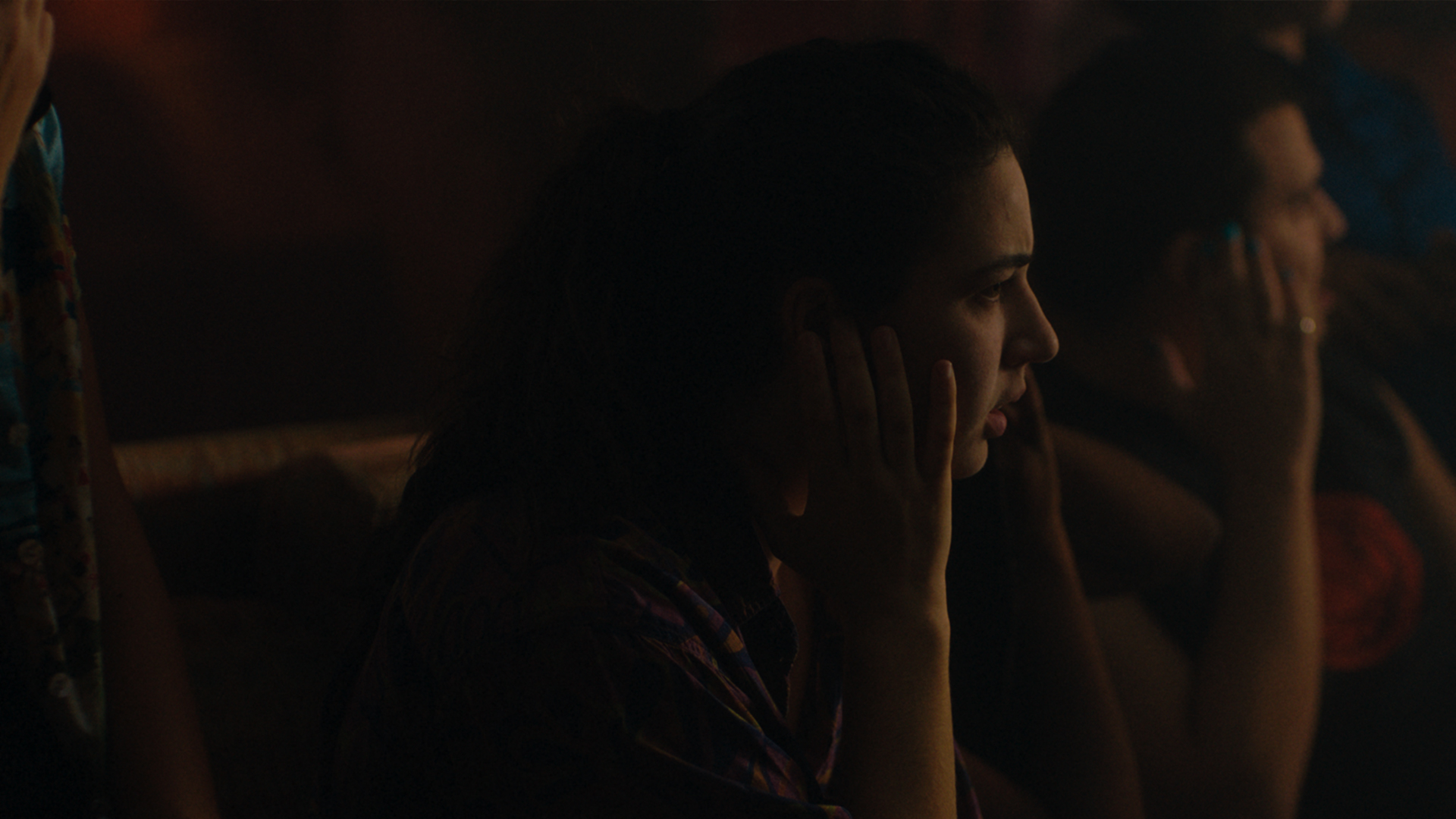
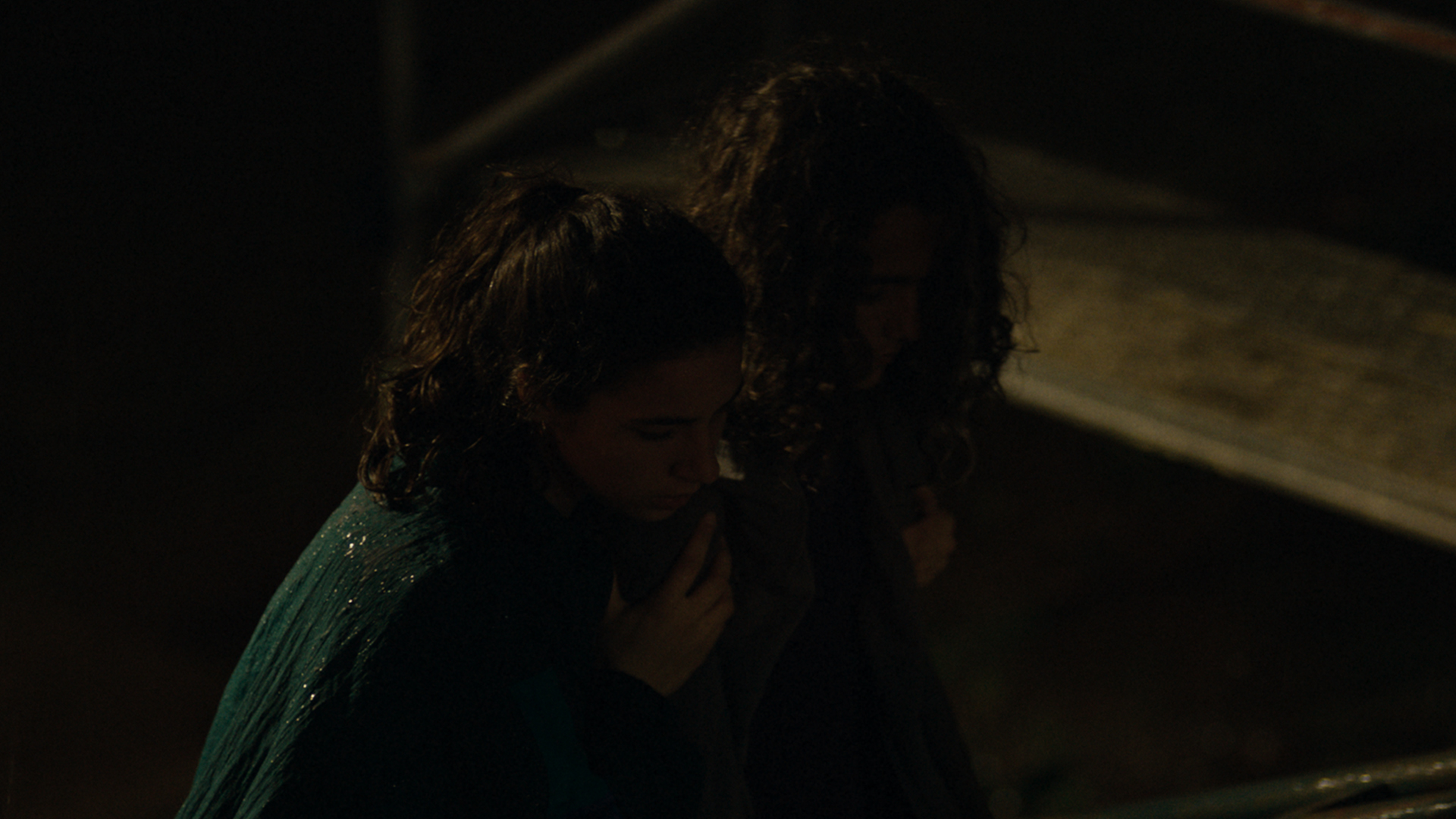
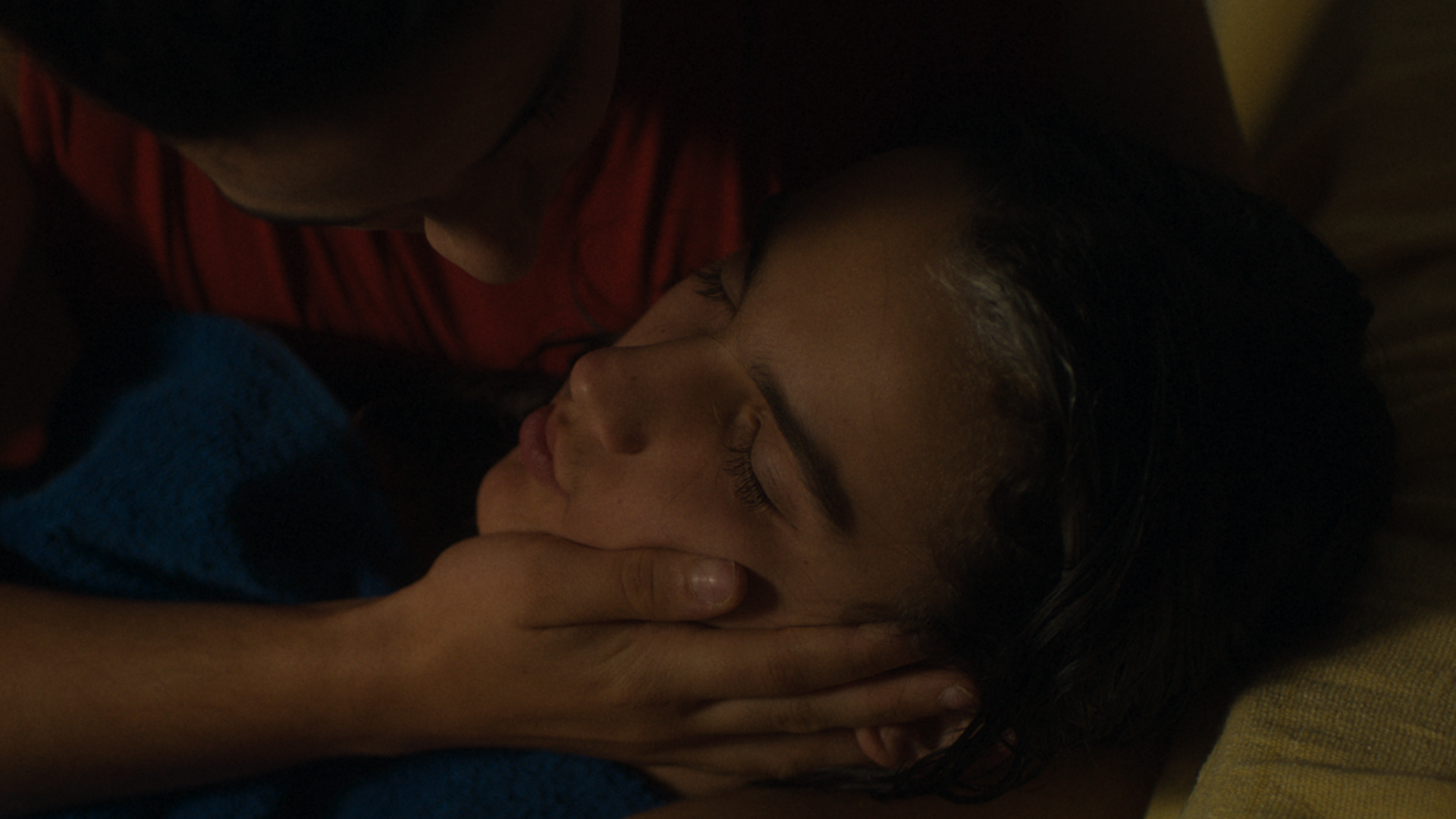
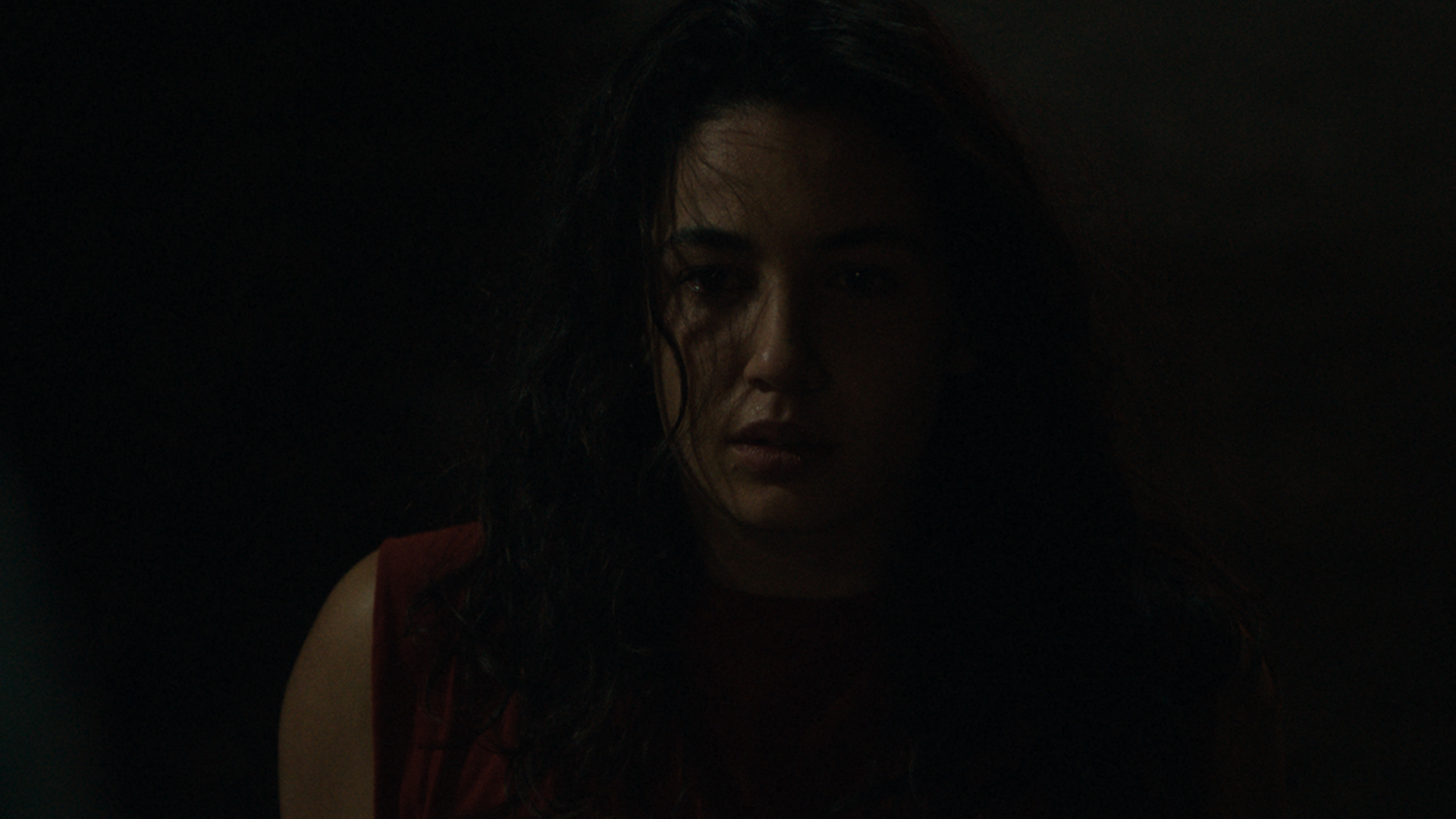
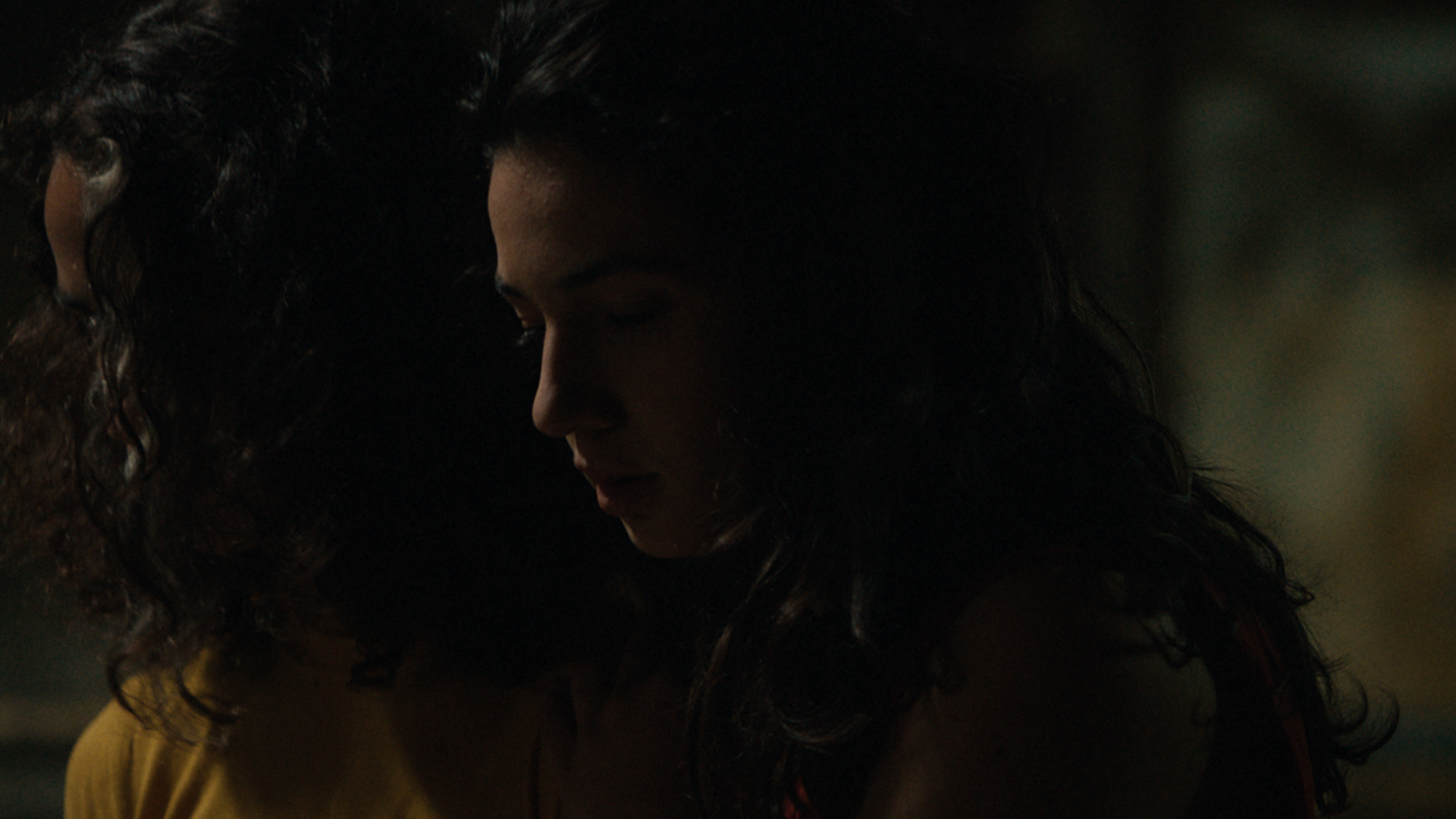

a film by Tomás Paula Marques
Gabi believes in her ability to act in times of injustice. One day, Gabi finds out that Daniel, her sibling, is a victim of bullying in their neighborhood. While trying to avenge them, Gabi realizes that perhaps all the coinciding events related to her sibling are a test made by ghosts of the past.
Gabi believes in her ability to act in times of injustice. One day, Gabi finds out that Daniel, her sibling, is a victim of bullying in their neighborhood. While trying to avenge them, Gabi realizes that perhaps all the coinciding events related to her sibling are a test made by ghosts of the past.
Text by Pê Feijó
There are a couple of ways to make History. As a literary genre, History is marked by a serious and sober tone, invested in un-covering or re-vealing what time has suppressed. Cronos devours his children, and it’s the task of History, guarded by Truth itself — as Goya allegorized so well in his painting —, to recover and protect the past.
But, even in its loftiest facet, History cannot avoid to be story. Beyond tied and untied facts, History is told.
There are things, however, that History cannot tell, create or allow to exist. Episodes and events without archives or record. Moments and movements of characters whose trace the world banned, and that time has not marked with glory, or even disdain. Histories that, when told from where we stand - and they are always told from where we stand - would have had to be formed by impossible landscapes, impossible people, impossible gestures.
When one catches sight of History’s horizon, the limit of its reach, there is a choice to be made. One possibility is the withdrawal of discipline. The boundaries on the validity of method and truth are reiterated and patrolled, and the undesired/undesirable stories are driven back to where they came from, to, one imagines, the realm of fantasy.
The alternative - abundant, excessive - is fabulation. Fabulation knows that everything is a story, and faced with the limits of History, confronted with the dusk that marks its horizon, does not retract.
Fabulation does not try to restore what Cronos has devoured (— even the titan found our bodies resistant). Instead, it welcomes with open arms, on in its lap, what he has left behind, the fats that were too much and the skins that were not enough, the cartilage he wasn’t able to chew, the bones with which he picked his teeth, and it surrenders to a fantastic paleography no less true than any other. It knows that archive is a trace, an irreplaceable trace. But it also knows that archive is not the words of a book any more than it is the dust that covers it, the dust on the ground and suspended in the air.
There are a couple of ways to make History. The degenerate, infamous and the stainy kid know them well. They know of the poetics, sung or cacophonous, that welcome in their lap that which still has no term. They know of the realness with which history solemnly dresses itself up, suit and tie, with which it adorns itself facts, with which it factualizes itself. And they know of necromancy, how to bring to life the semi-presence, the present-absence, of those who could not have a name, an crucial and irrecoverable past. Of those who could not have a name, an irrecoverable and crucial present.
Together in the repeated aquelarre that they call life — that they call survival —, they share tales, laughs and auto-defense against autos-da-fé. They listen to Luciana’s words. They pay attention to gestures and conversations. To the feedbacks that pierces them. To silence.
Together in the night that is our shield and our cage, our cloak and our wound, we know we are the grandchildren of the witches they couldn’t burn.
But from wombs they hear echos of something even more important. That they are also the ones who come together again and again, before, after and now. Those who come to-gæther no matter how much they’ve been reduced to shards and ashes, because in their veins flows the impure blood that others have spilled. That they are also the granddaughters of the witches with no lineage or descent, the ones who couldn’t have daughters who would have us.
There are impossible histories. Those that are made to disappear even before becoming past. Those without a right to time carry in their fingers the talent to writing them.
It’s the Blindman’s buff.
Numa história era uma vez
Pedi um teste de gravidez
E o meu pack de 6
E a gota de suor que te faz gay
E o horóscopo quando calha
E o verniz quando falhas
Desce até à Filipe da Mata
Apanha o táxi e please baza
Se eu não me vim, não me leves a mal
Nem o Tom Cruise é sempre sensacional
Não-bicha, não-macho, olha no que eu virei
Sou o teu favorito, sou o teu panelei
Porque faca por faca, porque mana por mana
Tipo rouba-lhe a tiara, tipo espeta-lhe a catana
Panelei punx, panelei punx
directing TOMÁS PAULA MARQUES with FRANCISCA SILVA, GASPAR MENEZES, ELUISA MUAMBI, FRANCISCA RIBEIRO, INÊS CARVALHAL, TERESA SERRA NUNES, RODRIGO VAIAPRAIA, JOÃO ABREU, ANA FARINHA, INÊS PINHEIRO TORRES, INÊS BRITES, PEDRO COELHO, RICARDO PINTO, VASCO SEQUEIRA, ANDRÉ MARQUES, MIGUEL AMORIM, RODRIGO TOMÁS, VASCO BARROSO e CÃO CRIXUS DO VALE DA LOBAGUEIRA script INÊS PINHEIRO TORRES, MARCELO TAVARES, RODRIGO VAIAPRAIA, TOMÁS PAULA MARQUES image MANUEL PINHO BRAGA camera first assistant ANA RAMOS key grip ANDRÉ CARVALHO, EDUARDO CARVALHO sound MARCELO TAVARES sound assistant VICENTE MOLDER editing CLARA JOST, JORGE JÁCOME production CRISTIANA CRUZ FORTE, PATRÍCIA SILVA, TOMÁS PAULA MARQUES executive production MARIA INÊS GONÇALVES production assistant NEVENA DESIVOJEVIC assistant director JOSÉ RITO script supervisor ANDRÉ SILVA SANTOS art direction LEONOR COELHO art assistant CAROLINA LOBATO sound mix PEDRO GÓIS makeup SOFIA FRAZÃO hair MARIA CASTELLO BRANCO color grading MARTÍ SOMOZA extras FRANCISCA TADEU, ILUNDI DURÃO DE MENEZES, JÉSSICA ROÇAS, JOÃO AYTON, TATA GARRUCHO, VICENTE COELHO
Maybe Luciana’s right when she says that I should pay more attention to things around me.
There are a couple of ways to make History. As a literary genre, History is marked by a serious and sober tone, invested in un-covering or re-vealing what time has suppressed. Cronos devours his children, and it’s the task of History, guarded by Truth itself — as Goya allegorized so well in his painting —, to recover and protect the past.
But, even in its loftiest facet, History cannot avoid to be story. Beyond tied and untied facts, History is told.
There are things, however, that History cannot tell, create or allow to exist. Episodes and events without archives or record. Moments and movements of characters whose trace the world banned, and that time has not marked with glory, or even disdain. Histories that, when told from where we stand - and they are always told from where we stand - would have had to be formed by impossible landscapes, impossible people, impossible gestures.
When one catches sight of History’s horizon, the limit of its reach, there is a choice to be made. One possibility is the withdrawal of discipline. The boundaries on the validity of method and truth are reiterated and patrolled, and the undesired/undesirable stories are driven back to where they came from, to, one imagines, the realm of fantasy.
The alternative - abundant, excessive - is fabulation. Fabulation knows that everything is a story, and faced with the limits of History, confronted with the dusk that marks its horizon, does not retract.
With wings or on a broom.— It flies
— It flies
Hecate’s owl.
— It flies
Fabulation does not try to restore what Cronos has devoured (— even the titan found our bodies resistant). Instead, it welcomes with open arms, on in its lap, what he has left behind, the fats that were too much and the skins that were not enough, the cartilage he wasn’t able to chew, the bones with which he picked his teeth, and it surrenders to a fantastic paleography no less true than any other. It knows that archive is a trace, an irreplaceable trace. But it also knows that archive is not the words of a book any more than it is the dust that covers it, the dust on the ground and suspended in the air.
— And dusts, sisters, are ghosts.
Dust, sisters, is her anguish that still haunts this town.
There are a couple of ways to make History. The degenerate, infamous and the stainy kid know them well. They know of the poetics, sung or cacophonous, that welcome in their lap that which still has no term. They know of the realness with which history solemnly dresses itself up, suit and tie, with which it adorns itself facts, with which it factualizes itself. And they know of necromancy, how to bring to life the semi-presence, the present-absence, of those who could not have a name, an crucial and irrecoverable past. Of those who could not have a name, an irrecoverable and crucial present.
Together in the repeated aquelarre that they call life — that they call survival —, they share tales, laughs and auto-defense against autos-da-fé. They listen to Luciana’s words. They pay attention to gestures and conversations. To the feedbacks that pierces them. To silence.
Together in the night that is our shield and our cage, our cloak and our wound, we know we are the grandchildren of the witches they couldn’t burn.
But from wombs they hear echos of something even more important. That they are also the ones who come together again and again, before, after and now. Those who come to-gæther no matter how much they’ve been reduced to shards and ashes, because in their veins flows the impure blood that others have spilled. That they are also the granddaughters of the witches with no lineage or descent, the ones who couldn’t have daughters who would have us.
We are the granddaughters of the witches who did burn at the stake.
There are impossible histories. Those that are made to disappear even before becoming past. Those without a right to time carry in their fingers the talent to writing them.
It’s the Blindman’s buff.
Numa história era uma vez
Pedi um teste de gravidez
E o meu pack de 6
E a gota de suor que te faz gay
E o horóscopo quando calha
E o verniz quando falhas
Desce até à Filipe da Mata
Apanha o táxi e please baza
Se eu não me vim, não me leves a mal
Nem o Tom Cruise é sempre sensacional
Não-bicha, não-macho, olha no que eu virei
Sou o teu favorito, sou o teu panelei
Porque faca por faca, porque mana por mana
Tipo rouba-lhe a tiara, tipo espeta-lhe a catana
Panelei punx, panelei punx
directing TOMÁS PAULA MARQUES with FRANCISCA SILVA, GASPAR MENEZES, ELUISA MUAMBI, FRANCISCA RIBEIRO, INÊS CARVALHAL, TERESA SERRA NUNES, RODRIGO VAIAPRAIA, JOÃO ABREU, ANA FARINHA, INÊS PINHEIRO TORRES, INÊS BRITES, PEDRO COELHO, RICARDO PINTO, VASCO SEQUEIRA, ANDRÉ MARQUES, MIGUEL AMORIM, RODRIGO TOMÁS, VASCO BARROSO e CÃO CRIXUS DO VALE DA LOBAGUEIRA script INÊS PINHEIRO TORRES, MARCELO TAVARES, RODRIGO VAIAPRAIA, TOMÁS PAULA MARQUES image MANUEL PINHO BRAGA camera first assistant ANA RAMOS key grip ANDRÉ CARVALHO, EDUARDO CARVALHO sound MARCELO TAVARES sound assistant VICENTE MOLDER editing CLARA JOST, JORGE JÁCOME production CRISTIANA CRUZ FORTE, PATRÍCIA SILVA, TOMÁS PAULA MARQUES executive production MARIA INÊS GONÇALVES production assistant NEVENA DESIVOJEVIC assistant director JOSÉ RITO script supervisor ANDRÉ SILVA SANTOS art direction LEONOR COELHO art assistant CAROLINA LOBATO sound mix PEDRO GÓIS makeup SOFIA FRAZÃO hair MARIA CASTELLO BRANCO color grading MARTÍ SOMOZA extras FRANCISCA TADEU, ILUNDI DURÃO DE MENEZES, JÉSSICA ROÇAS, JOÃO AYTON, TATA GARRUCHO, VICENTE COELHO